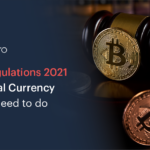The Role of Cryptocurrency in Developing Countries: Financial Inclusion and Beyond – Delving into The Role of Cryptocurrency in Developing Countries Financial Inclusion and Beyond, this introduction immerses readers in a unique and compelling narrative. Cryptocurrency has emerged as a transformative force for economies facing barriers to traditional financial systems. By harnessing blockchain technology, developing nations have the opportunity to enhance financial inclusion, empower their citizens, and pave the way for innovative solutions to age-old economic challenges.
As we explore this topic, we’ll uncover how cryptocurrency is reshaping the financial landscape, offering new avenues for investment, remittances, and access to essential services. With many individuals and businesses lacking access to banking infrastructure, digital currencies present a viable alternative that can bridge the gap and foster economic growth.
In today’s fast-paced world, communication has taken on many forms, each with its distinct advantages and limitations. Among these, written communication stands out for its ability to convey complex ideas and messages with clarity and precision. This article delves into the nuances of written communication, exploring its significance, various styles, and best practices for effective use.When we think of written communication, the first thing that often comes to mind is email.
Email has revolutionized the way we interact, especially in professional settings. Gone are the days when a message would take days or even weeks to reach its destination. With a simple click, we can send an email to anyone across the globe, making communication instantaneous. However, while email is efficient, it also comes with its own set of challenges. Tone can often be misinterpreted, and without the visual cues present in face-to-face communication, messages can sometimes come off as brusque or overly formal.To enhance the effectiveness of email communication, one should consider a few key elements.
Firstly, clarity is paramount. A well-structured email should clearly convey the main point in the subject line, followed by concise and relevant content. This not only facilitates understanding but also respects the recipient’s time. Additionally, maintaining a professional yet approachable tone is essential. Striking the right balance can foster positive relationships, whether with colleagues, clients, or stakeholders.Another important aspect of written communication is the use of reports and proposals.
These documents often serve as the backbone of business operations, providing critical information for decision-making processes. A well-crafted report presents data in a logical progression, guiding the reader through the findings and conclusions. It is vital that reports are not only accurate but also visually appealing. Utilizing charts, graphs, and bullet points can enhance readability and make complex information more digestible.In terms of proposals, the goal is to persuade the reader to take action.
This requires a deep understanding of the audience’s needs and preferences. A successful proposal Artikels the problem, presents a solution, and demonstrates the benefits of the proposed course of action. Including testimonials or case studies can add credibility and illustrate the potential impact of the proposal. Ultimately, the key to effective proposals lies in the ability to connect emotionally with the reader while providing logical support for the recommendations made.Beyond emails, reports, and proposals, social media has emerged as a formidable platform for written communication.

The advent of social media has changed how brands and individuals interact with their audiences. Twitter, Facebook, LinkedIn, and Instagram each have their unique style and audience, which requires tailored content to engage effectively. Short, snappy posts can capture attention on platforms like Twitter, while more detailed narratives may thrive on LinkedIn.However, with the power of social media comes the responsibility of authenticity.
Users are increasingly seeking genuine interactions, and brands that fail to communicate honestly risk losing their audience’s trust. Establishing a consistent voice and engaging authentically with followers can build lasting relationships and foster community around a brand.Another critical component of written communication is the importance of grammar and style. While casual language is often acceptable in certain contexts, maintaining a level of professionalism is crucial, especially in formal settings.
Errors in grammar or punctuation can detract from the message and undermine the author’s credibility. Therefore, it is advisable to proofread and edit any written documents before sharing them.In addition to grammar, understanding different writing styles can also enhance communication. For example, persuasive writing aims to convince the reader to adopt a particular viewpoint, while descriptive writing paints a vivid picture of a scene or experience.
Adaptability in writing style is essential, as different situations may call for different approaches. Being able to switch between formal and informal styles, depending on the audience and purpose, can make one’s communication more effective.To further improve written communication skills, one can engage in regular practice. Writing daily, whether through journaling, blogging, or simply jotting down thoughts, can help refine one’s style and voice.
Additionally, seeking constructive feedback from peers or mentors can provide valuable insights into areas for improvement.In conclusion, written communication remains a vital skill in our modern world. From crafting clear emails to writing compelling reports and engaging social media posts, the ability to communicate effectively in writing can open doors and foster connections. As we navigate through various forms of written communication, it is essential to prioritize clarity, adaptability, and authenticity.
By honing these skills, individuals can enhance their professional relationships and contribute positively to their respective fields. Ultimately, the power of the written word should not be underestimated—it holds the potential to inspire, persuade, and inform in ways that can profoundly impact our lives and the lives of others.



